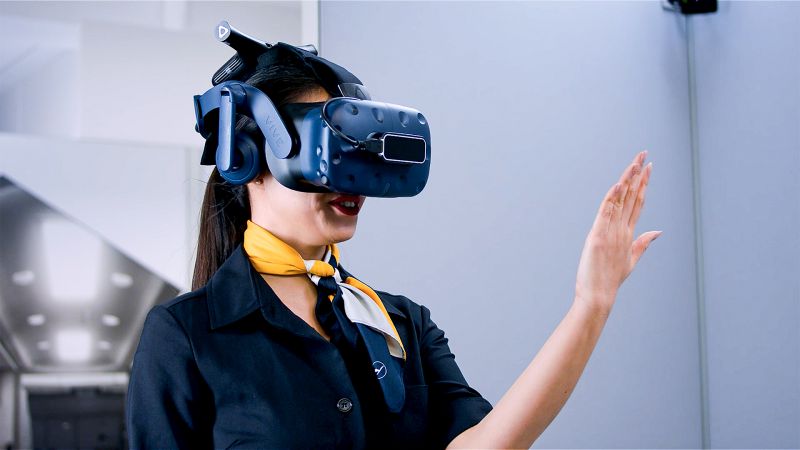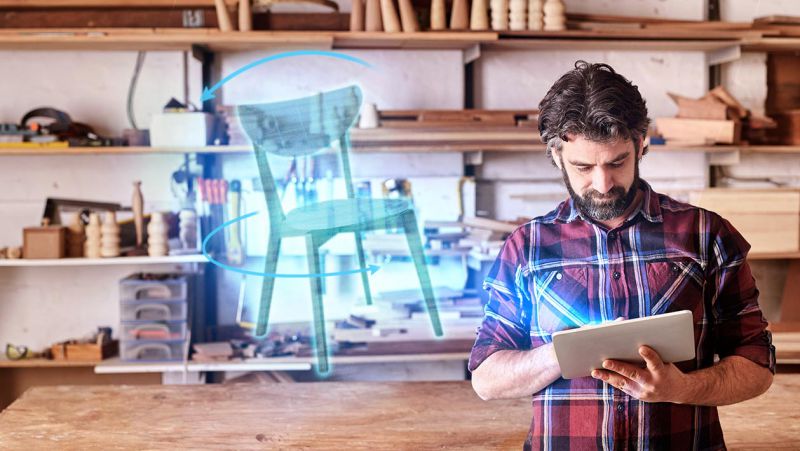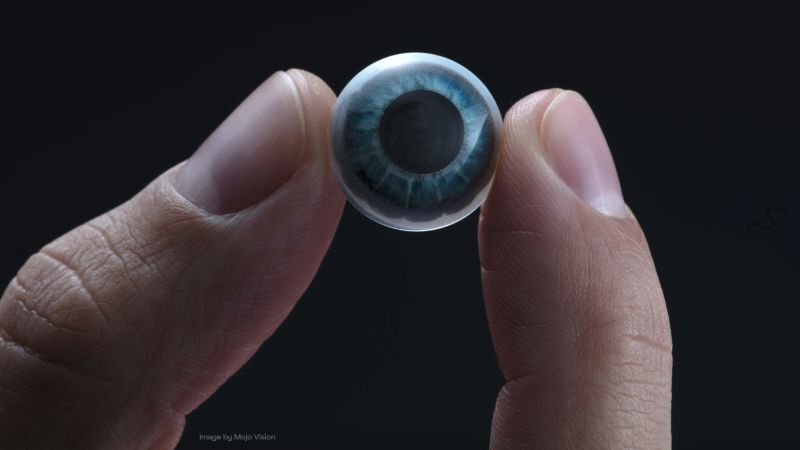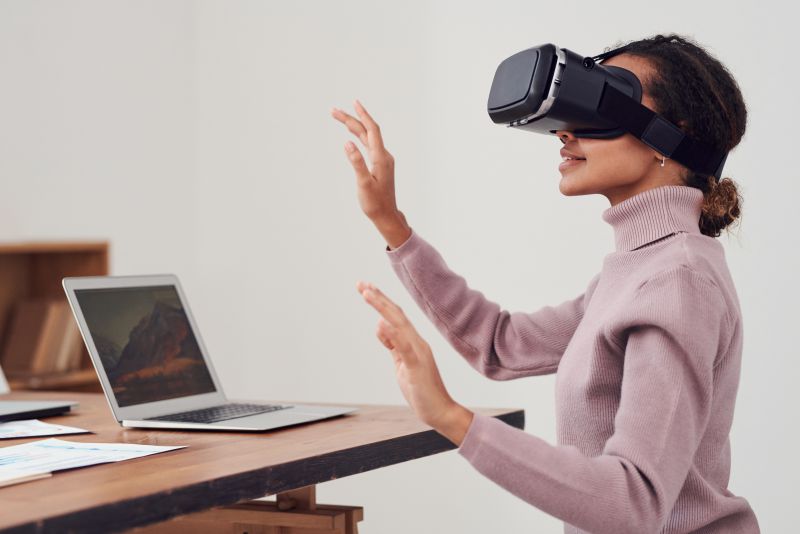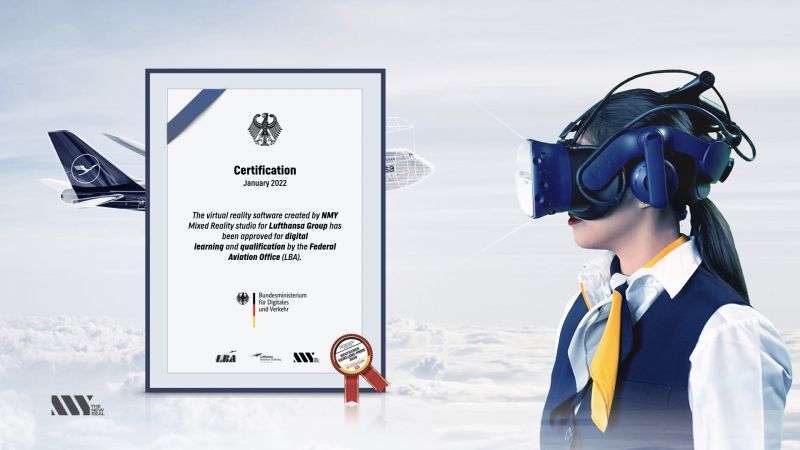
Proven Benefits of Using VR
Virtual Reality (VR) is revolutionizing the way companies train, learn, and work. Numerous studies and analyses show how VR technologies generate sustainable success and drive business forward.
Business Value
Immersive technologies can provide a high return on investment for companies – as demonstrated by many case studies.
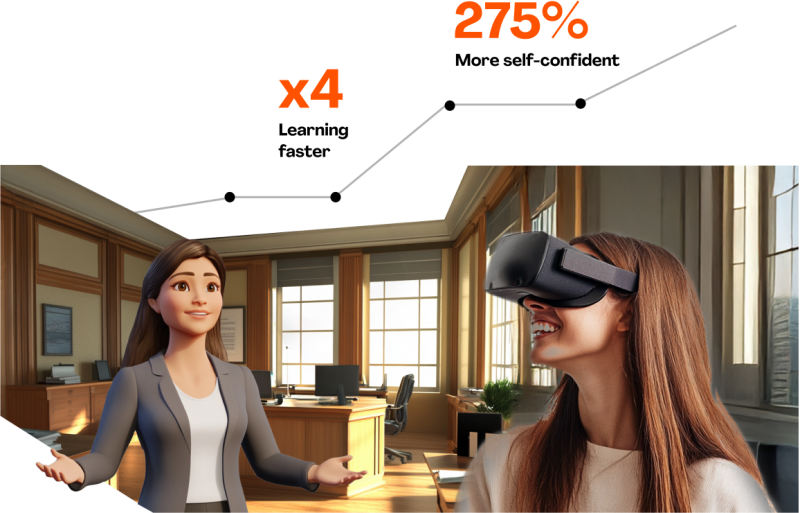
CASE STUDY Optimizied Learning
The PwC study shows that Virtual Reality (VR) is more efficient than traditional methods for soft-skill training. Participants learn four times faster, are 275% more confident, and benefit from a higher knowledge retention rate. VR is more cost-effective for large groups and improves emotional engagement with the content by 3.75 times, fostering better learning outcomes in communication, leadership, and collaboration.
Go to study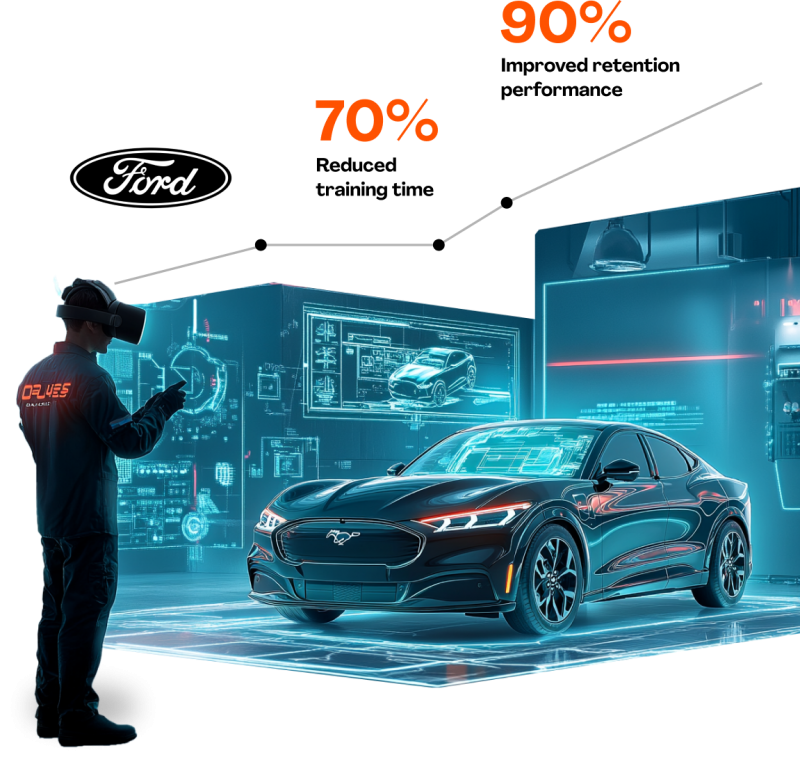
CASE STUDY Increased Learning
Ford and Bosch developed a VR training solution that allows technicians to learn maintenance processes for the Mustang Mach-E using Oculus Quest. This saves time and enables flexible learning. Initial tests began in 2019, and Ford plans to expand it to other models. Training time was reduced by 70% through VR, and employee retention increased by 90%.
Go to study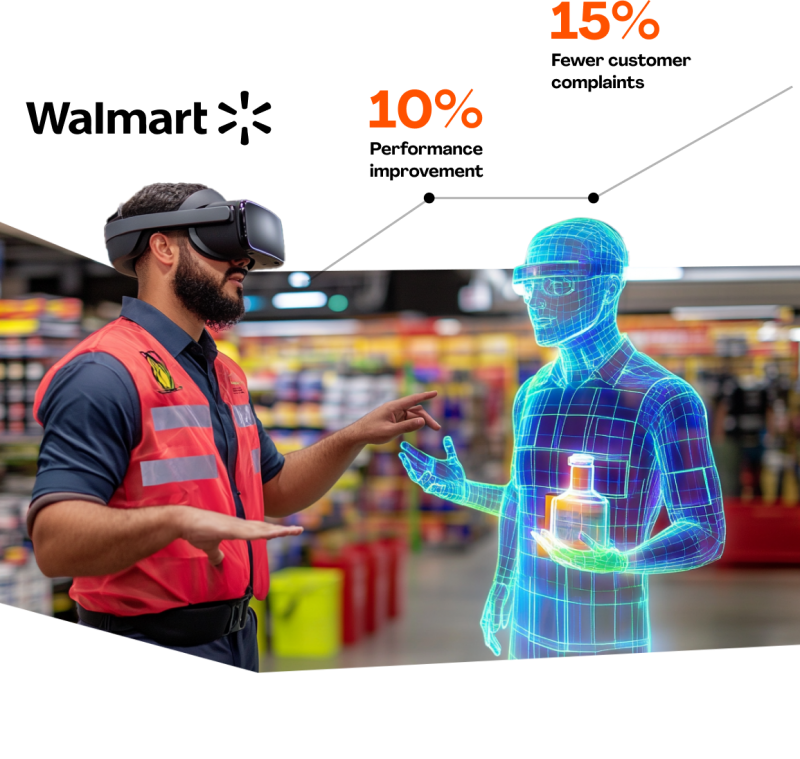
CASE STUDY Improved Performance & Satisfaction
Walmart has deployed over 17,000 VR headsets and trained over 1 million employees, reducing training time by 96% and lowering customer complaints by 15%. Particularly in emergencies and complex tasks, VR provides hands-on, efficient training that prepares employees more quickly for new processes, improving overall efficiency and satisfaction.
Go to study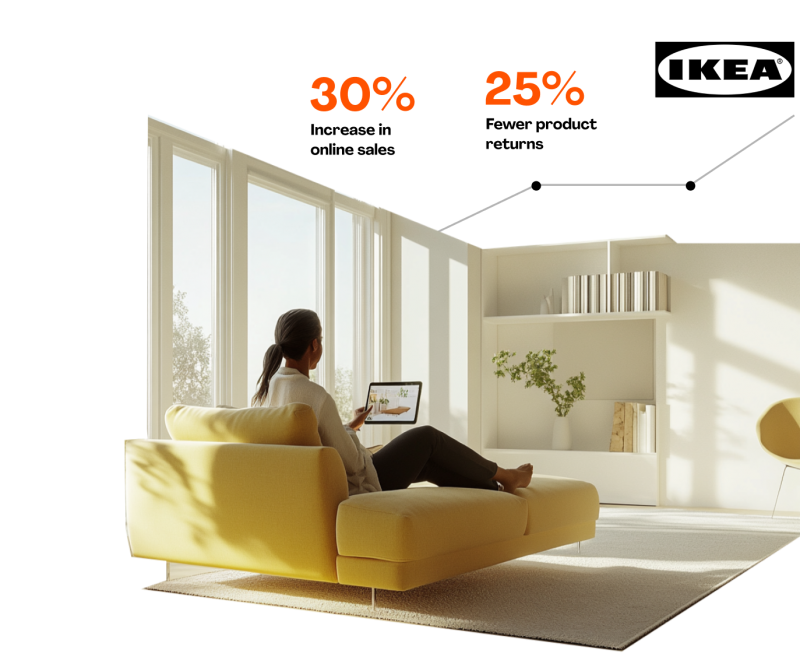
CASE STUDY More trust & better decisions
The study of the IKEA Place app shows that Augmented Reality (AR) enhances the customer experience and makes purchasing decisions easier. Users can virtually place products in their environment, which builds trust and satisfaction. AR increases purchase intent by 35% and promotes customer loyalty and brand value through an interactive, immersive experience.
Go to study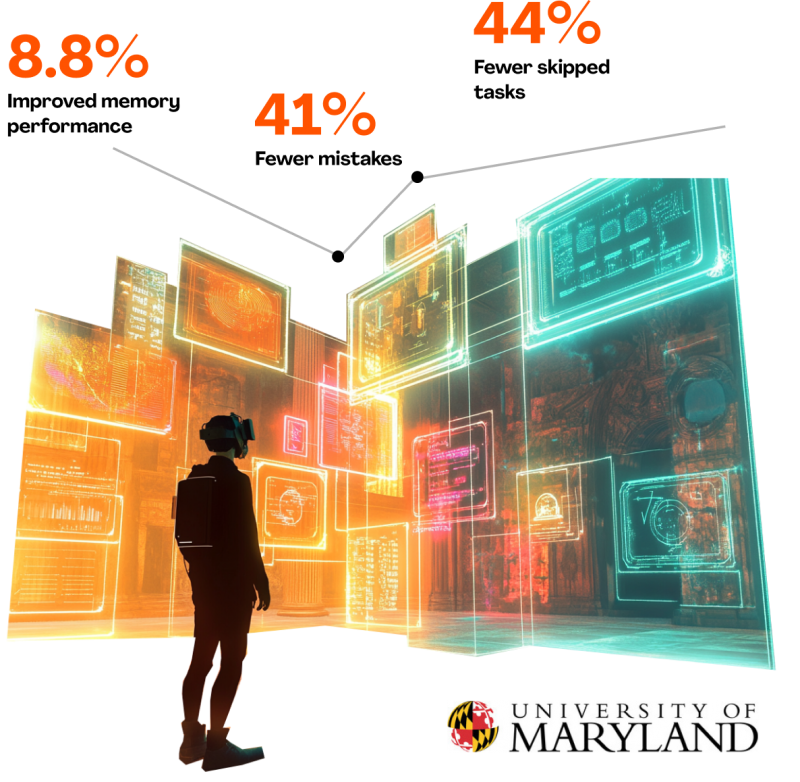
CASE STUDY Improved Memory Performance
The Maryland study shows that VR-based memory palaces significantly improve memory performance. Users of VR headsets achieved an 8.8% higher recall rate, made 41% fewer mistakes, and skipped 44% fewer tasks. Their confidence in the answers increased to 9.4 (vs. 9.1 on desktop). Participants who used VR first performed worse when switching to desktop afterward.
Go to study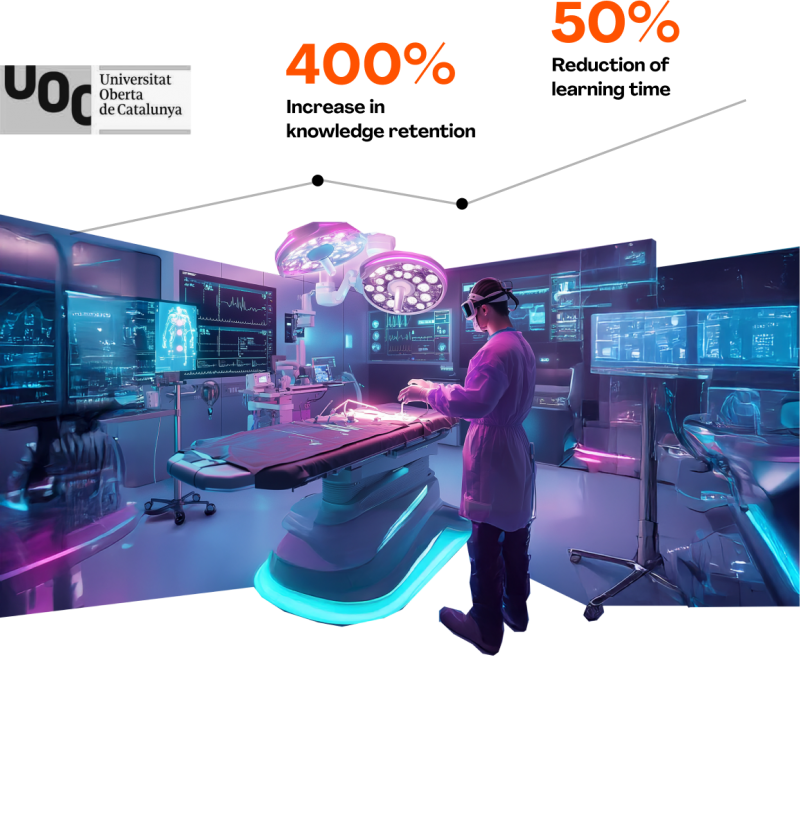
CASE STUDY Promotion of social & emotional skills
The use of VR in training increases knowledge retention by up to 400% and reduces learning time by 50%. In the C19 project, 20,000 healthcare professionals were trained across Europe. With just 3D glasses and a mobile device, the technology is accessible and promotes social as well as cognitive skills, even in other fields.
Go to study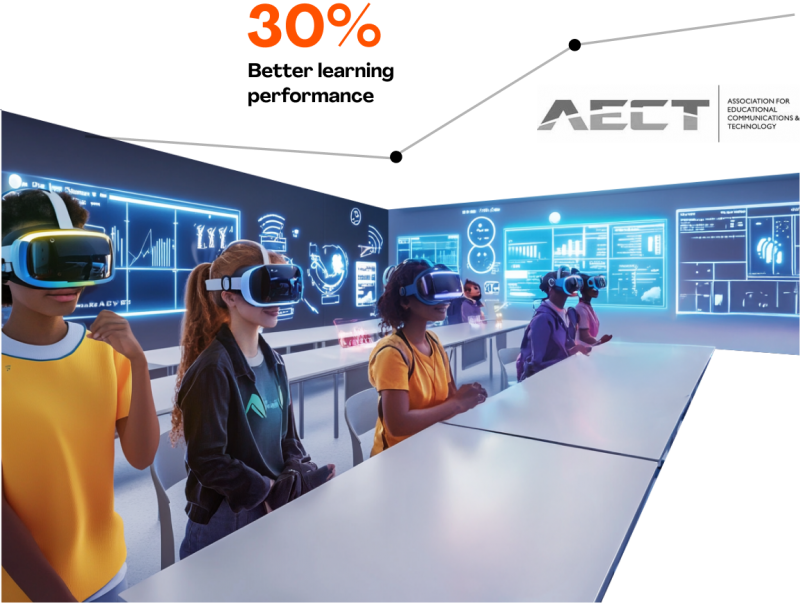
Case Study Transformation of education
VR in education boosts motivation and engagement. Studies show up to 30% better learning performance compared to traditional methods. It enhances cognitive, social, and motor skills, and is especially effective in STEM subjects, languages, and healthcare. Gamification further supports this effect by increasing motivation and improving outcomes.
Go to study
Would you like to learn more?
Experience our innovative solutions firsthand: Visit our NMY Spaces showroom for an informal demo or request a loaner headset to dive into the world of immersive experiences.
